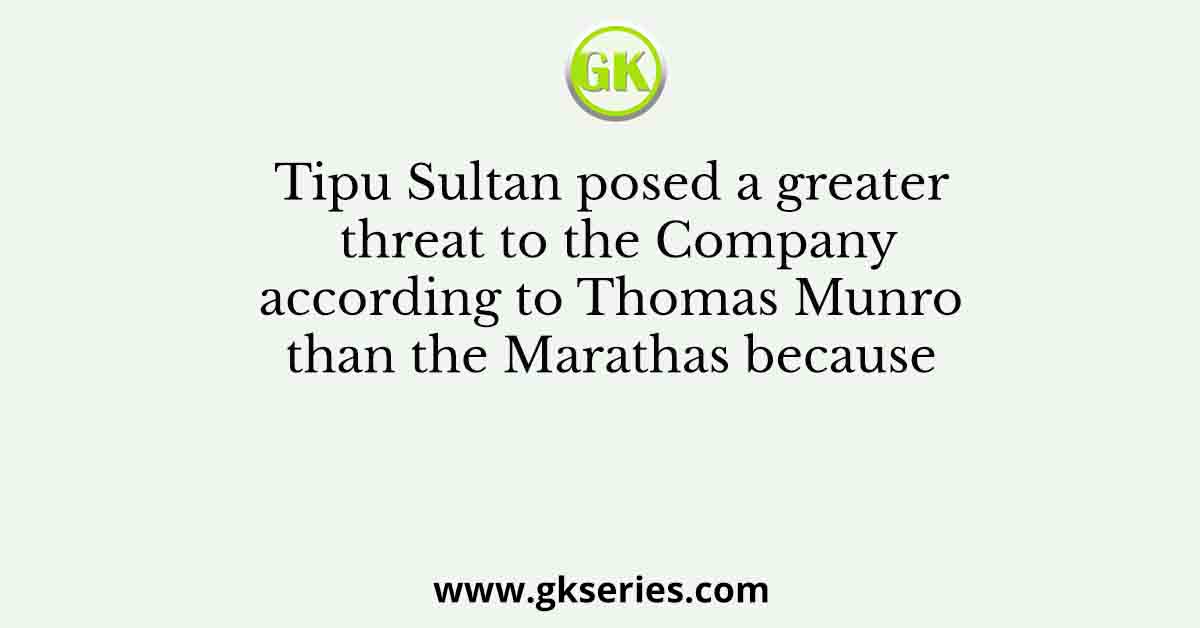
Q. Tipu Sultan posed a greater threat to the Company according to Thomas Munro than the Marathas because
(a) he was involved in centralizing his State structure
(b) he was regulating State revenues
(c) he was interested in the new modes of European warfare
(d) all the above
Ans: (d) all the above
Explanation: The correct answer is (d) all the above.
According to Thomas Munro, Tipu Sultan posed a greater threat to the East India Company compared to the Marathas for the following reasons:
(a) Tipu Sultan was involved in centralizing his state structure. This means that he was consolidating power and authority within his kingdom, which made him a formidable opponent to the Company’s interests.
(b) Tipu Sultan was actively regulating state revenues. By effectively managing and controlling the financial resources of his kingdom, he could finance his military and administrative activities more efficiently, thereby strengthening his position against the Company.
(c) Tipu Sultan showed a keen interest in adopting new modes of European warfare. He modernized and reorganized his army, incorporating European military tactics, technology, and weaponry. This made his forces more formidable and adaptable in battle.
Considering these factors, Thomas Munro believed that Tipu Sultan’s efforts in centralization, revenue regulation, and adoption of European warfare posed a greater threat to the East India Company compared to the Marathas.





